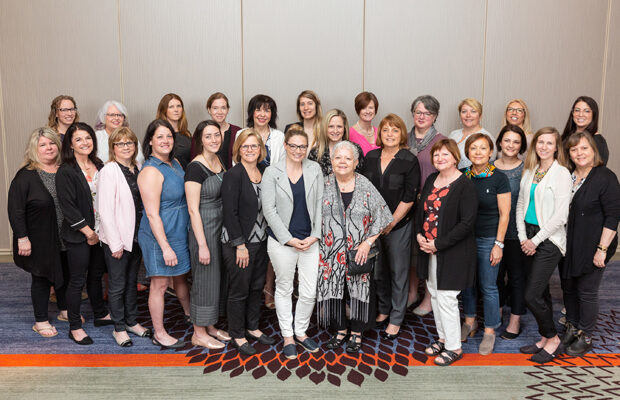2020: The International Year of the Nurse

The evolution of nursing care for Canadians with inherited bleeding disorders
Nurses have been involved in delivering excellent care to people with inherited bleeding disorders since before the advent of comprehensive care clinics. We may remember the late 1960s when young children who came to the emergency department with a cerebral bleed were treated with plasma. In 1969, the first comprehensive care clinic in Canada was established in Montreal.
In 1978, the “Comprehensive Care for the Canadian Hemophiliac” conference was held in Winnipeg. There were physicians and consumers representing nine treatment centres. It was at this conference that the concept of comprehensive care for all Canadians with inherited bleeding disorders was born. The members of the clinic team are the physician, the nurse coordinator, the physiotherapist and the social worker. The nurse coordinator serves as the contact person for the patient, assessing and treating bleeding episodes, educating parents and families, and supervising product utilization for people on home infusion.
In the early 1980s, hemophilia nurse coordinators started having yearly meetings supported by the Canadian Hemophilia Society. We discussed treatment modalities in hemophilia and exchanged educational materials from other countries. With the onset of the HIV/AIDS epidemic, we became support for one another. As time went by, we started developing our own educational materials. In the late 1980s, the nurses became more involved in committee work with the Canadian Hemophilia Society and participated in workshops and symposia. We started participating in research, continuing education in nursing, and education of patients and caregivers, our peers in hemophilia and health care, and others.
In 1995, the hemophilia nurses group felt that it would benefit the clinics and the nurses themselves if it became a member of their professional body, the Canadian Nurses Association (CNA). In 1997, the group of hemophilia nurse coordinators became an associate member of the Canadian Nurses Association. We are now the Canadian Association of Nurses in Hemophilia Care (CANHC). Many of our members have represented our association as speakers at international conferences and a CANHC representative serves on the nursing committee of the World Federation of Hemophilia.
As bleeding disorder treatment has evolved, so has the role of the nurse. Many treatment centres now have nurse practitioners (NP) or nurses in the Extended Class (EC). Bleeding disorder nurses are continuing to participate in research at higher level.
The recent COVID-19 pandemic has caused dramatic change in nursing practice! Some bleeding disorder nurses are working away from the hospital setting and some work from home. Others are being deployed elsewhere as needed. To our Canadian nursing colleagues and those around the world, thank you and be safe!
2019-2020 CANHC Executive
Betty Ann, Heather, Nancy and Sue




